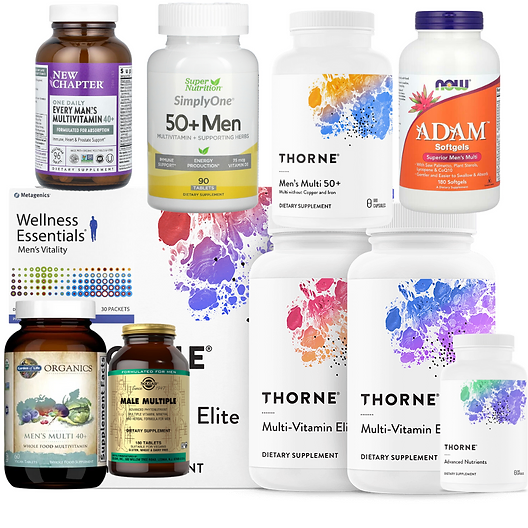The Incredible Benefits of Vitamin D for Your Health
When’s the last time you thought about your vitamin D levels? It’s one of those nutrients we hear about, but many of us don’t pay much attention to. Here’s the thing—vitamin D is a game-changer. It’s not just about keeping your bones strong; it plays a vital role in almost every aspect of our health.
This blog dives into everything you need to know about the “sunshine vitamin”: what it is, why it’s essential, how to make sure you’re getting enough, and the incredible ways it supports your body and mind. By the end, you’ll be ready to give your vitamin D levels the attention they deserve.
What is Vitamin D and Why is it Essential?
Vitamin D isn’t just any vitamin—it’s a powerhouse nutrient that your body genuinely needs. It helps regulate calcium and phosphorus, both crucial for bone health. But here’s what makes it unique—it’s produced when sunlight hits your skin, earning its nickname, the “sunshine vitamin.”
You can also get vitamin D through food and supplements, but your body absorbs it naturally from the sun’s UVB rays. Whether you prefer sipping on fortified orange juice, munching on fatty fish like salmon, or taking a daily supplement, this nutrient is key to staying healthy.
The Role of Vitamin D in Your Body
Why is vitamin D so critical? Here’s the scoop on what it does for your body:
- Supports Strong Bones – Vitamin D helps your body absorb calcium, which keeps your bones sturdy. Without it, bones become brittle and prone to fractures.
- Boosts Immune Health – It strengthens your immune system, helping your body fight off infections more effectively. (More on this later!)
- Improves Mental Well-Being – Vitamin D is connected to brain health and mood regulation, potentially reducing the risk of depression and anxiety.
- Affects Muscle and Nerve Function – It plays a key role in muscle strength and ensuring your nerves can send messages properly.
What’s amazing is that this one nutrient supports all these different systems, proving how essential it really is.
Vitamin D Deficiency is More Common Than You Think
Did you know that nearly 1 billion people worldwide are vitamin D deficient? Despite being so easy to obtain with sunlight and food, many of us don’t get enough. Lifestyle factors play a big role—spending more time indoors, living in areas with limited sunlight, or wearing sunscreen (which blocks UVB rays) can all contribute.
Symptoms of deficiency can include fatigue, bone pain, frequent illnesses, or even changes in mood. If left untreated, it can lead to more serious conditions like osteoporosis, heart disease, or a weakened immune system.
How to Get Enough Vitamin D
The great news? It’s easy to boost your vitamin D levels once you know how. Here’s where to start:
- Safe Sun Exposure
Spend 10–30 minutes in the sun a few times a week, depending on your skin tone and the intensity of sunlight where you live. Early mornings or late afternoons are best to avoid harmful UV exposure.
- Add Vitamin D-Rich Foods to Your Diet
Incorporate foods like fatty fish (salmon, mackerel), egg yolks, fortified cereals, and dairy products into your meals. These foods are packed with this vital nutrient.
- Consider Supplements
If sunlight and diet don’t provide enough, take a vitamin D supplement. Look for vitamin D3, which is more effective at raising blood levels compared to D2. Be sure to consult your doctor before starting.
How Vitamin D Impacts Specific Health Goals
Vitamin D isn’t just about bones—it holds benefits tailored to various health goals, like:
- Improved Fitness Performance
Studies suggest vitamin D improves muscle recovery, strength, and even endurance. Whether you’re into lifting weights, running marathons, or yoga, vitamin D can be your fitness wingman.
- Weight Management
Some research links vitamin D to better weight management by supporting metabolism and energy balance.
- Chronic Disease Prevention
Adequate levels may lower the risk of certain diseases like type 2 diabetes, cardiovascular disease, and even some cancers.
Vitamin D’s Link to Mental Health
Can a lack of vitamin D really affect your mood? Absolutely. This nutrient activates receptors in parts of the brain responsible for emotion regulation. Studies have found that people with lower vitamin D levels are more likely to experience depression and anxiety.
While it’s not a standalone treatment, ensuring you have enough vitamin D may be key to maintaining a balanced and healthy mind. Combined with a healthy lifestyle and other therapies, it can make a big difference over time.
Vitamin D and Your Immune System
One of vitamin D’s most important roles is supporting your immune system. It enhances your body’s ability to fight off pathogens, making you less prone to infections like the flu or common colds. Research during the COVID-19 pandemic even highlighted how adequate vitamin D levels can support overall immune health.
If you’re someone prone to getting sick often, checking your vitamin D levels during a routine doctor visit might be worth it.
It’s Time to Prioritize Your Vitamin D Levels
Vitamin D may not get the spotlight that other nutrients do, but its impact on your health is undeniable. From strengthening your bones to enhancing your mood and boosting your immune system, it’s a nutrient you can’t afford to overlook.
Start small. Spend more time outside, add a few vitamin D-rich foods to your plate, or talk to your doctor about starting a high-quality supplement.
Take control of your health today—your body (and mind) will thank you for it.







